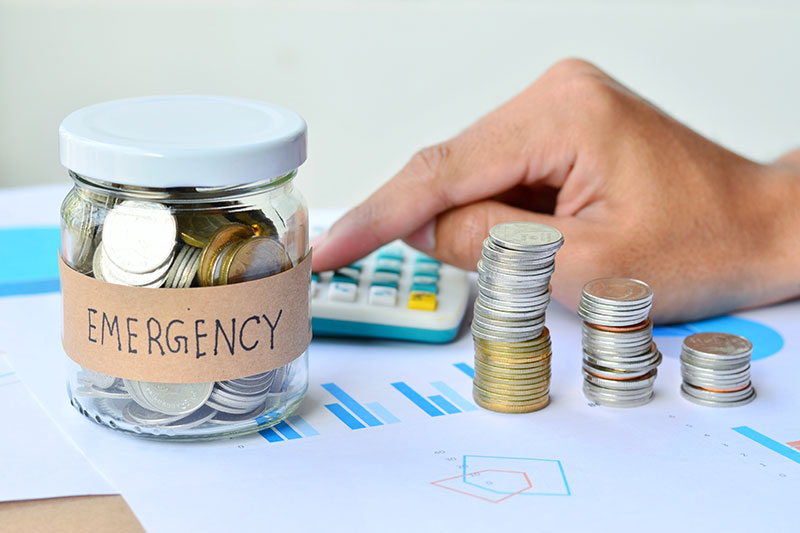In this article, we delve into the crucial topic of building an emergency fund—an essential component of financial well-being. Life is unpredictable, and unexpected expenses can arise at any moment, from medical emergencies to car repairs or job loss.
An emergency fund acts as your safety net during these times of uncertainty, providing financial stability and peace of mind. Join us as we explore the importance of an emergency fund, strategies for building it, and tips for effectively managing this critical aspect of personal finance.
Understanding the Importance of an Emergency Fund: An emergency fund is a dedicated pool of savings specifically earmarked to cover unforeseen expenses or income disruptions.
It serves as a buffer, shielding you from the need to rely on credit cards, loans, or depleting long-term investments when financial emergencies strike. Here’s why building an emergency fund should be a top priority:
- Financial Stability: Having an emergency fund creates a sense of financial stability. It allows you to navigate unexpected expenses or income loss without experiencing significant disruptions to your overall financial well-being. With a safety net in place, you can maintain your standard of living and meet financial obligations without accumulating debt or experiencing undue stress.
- Avoiding Debt: By having an emergency fund, you can avoid resorting to high-interest credit cards or loans to cover emergency expenses. This helps you prevent the accumulation of debt, which can have long-lasting negative consequences on your financial health.
- Peace of Mind: Knowing that you have a financial cushion in the form of an emergency fund provides peace of mind. It alleviates anxiety and allows you to face unexpected events with confidence, knowing that you have the means to handle them.
Building Your Emergency Fund
- Set Clear Savings Goals: Start by determining how much you aim to save in your emergency fund. A general guideline is to aim for three to six months’ worth of essential living expenses. However, the ideal amount may vary depending on factors such as your job stability, family situation, and individual risk tolerance.
- Create a Budget: Develop a realistic budget that outlines your income, expenses, and savings goals. Identify areas where you can cut back on discretionary spending to allocate more funds towards your emergency fund. Consistent and disciplined saving is key to building your safety net over time.
- Automate Savings: Consider automating regular contributions to your emergency fund. Set up automatic transfers from your paycheck or checking account to a dedicated savings account. This ensures that a portion of your income is consistently directed towards building your emergency fund, making it easier to stay on track.
Managing Your Emergency Fund
- Separate Account: Maintain your emergency fund in a separate savings account from your regular checking or savings accounts. This separation helps prevent the temptation to dip into your emergency fund for non-emergency purposes.
- Accessible, But Not Too Accessible: Choose a savings account that offers easy accessibility when needed, but also imposes some restrictions to discourage impulsive spending. Look for an account with no or low fees and a competitive interest rate to help your emergency fund grow over time.
- Replenish and Reevaluate: Replenish your emergency fund as soon as possible after using it for an unforeseen expense. Regularly reevaluate your savings goals and adjust them as necessary to account for changes in your financial situation or life circumstances.
Building an emergency fund is an essential step toward achieving financial well-being and resilience. It provides a safety net, ensuring that unexpected expenses or income disruptions do not derail your financial stability.
By understanding the importance of an emergency fund, setting clear savings goals, and implementing effective strategies, you can create a robust safety net that will protect you during times of uncertainty.
Remember to manage your emergency fund diligently, separate it from your regular accounts, and consistently replenish it after withdrawals. Empower yourself with the financial security and peace of mind that come from building an emergency fund, and embark on a journey towards a solid foundation for your financial future.









